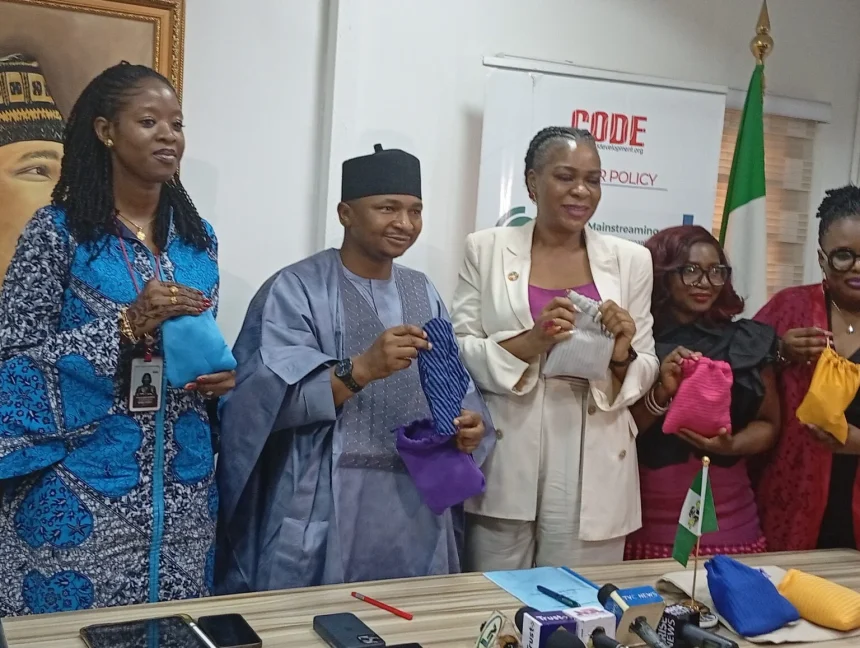The News Agency of Nigeria (NAN) reports that period poverty refers to lack of access to menstrual products, sanitation facilities and adequate education related to menstruation.
“Globally, 1.5 million people worldwide lack adequate menstrual products and hygiene facilities.
“In Nigeria, over 30 million girls do not have access to menstrual hygiene products.
“In schools, they don’t even have WASH facilities, and in most cases, when girls are on their period, they lose five to seven active days of education. This is unacceptable.
“Today, what we seek to achieve is to ensure that girls in remote communities have access to reusable pads, made locally.
“We hope that this can help to ensure that we reduce infectious diseases, and girls, when they’re on their period, can actually go to school and continue to learn and do not skip school,” Lawal said.
The founder of CODE said that with information sharing they can raise awareness, to ensure men join the fight to end period poverty.
“Menstruation is a natural phenomenon.
“I believe this will also help to reduce the number of out-of-school children in Nigeria, and ensure that communities are not forgotten.
“The bigger picture is not just about pads, it is about freedom to pursue education.
“It is about not feeling embarrassed or scared because you are experiencing a natural occurrence,” he said.
Lawal was optimistic that the government would take a cue and lead the way to fight against period poverty.
Explaining the organisation’s reason for partnering with CODE, Gbemi Elekula, Founder HUMANx, said they trusted in the capability of CODE to reach out to the underserved communities.
“We design and we produce clothes, and then, we make a profit from it. From this, we make reusable pads, and then we take them to the underserved communities and distribute them to the females there.
“Today, we have decided to step aside and to partner with CODE, for them to help us do this work.
“We are partnering with CODE because we have seen from their history that they have direct access to the kind of communities that we want to reach.
“We are trusting that they will be able to help us reach our target audience and to be able to give us feedback through data and statistics, on how these pads are serving them.
“Now, girls don’t have to miss school unless they choose to miss school or they are playing hanky-panky. You don’t have to miss school anymore because you are menstruating,” Elekula said.
Mshelia Hyeladzira, Assistant Director, Programme and Community Engage, CODE, said the production of reusable pads would be sustained.
According to her, the organisation has an ongoing project called the Girl Child Education Project in Bauchi State in partnership with Malala Funds, to build the capacity of girls to build things on their own.
Hyeladzira said girls would be taught how to make more of the pads in entrepreneurial activities, especially in the four LGAs where they are currently.
NAN reports that 200 reusable pads in various packs would be distributed to six states across the six geo-political zones of the country.
The states are Bauchi, Kogi, Kaduna, Bayelsa, Enugu and Ogun, with the distribution starting with Kogi on Tuesday.



